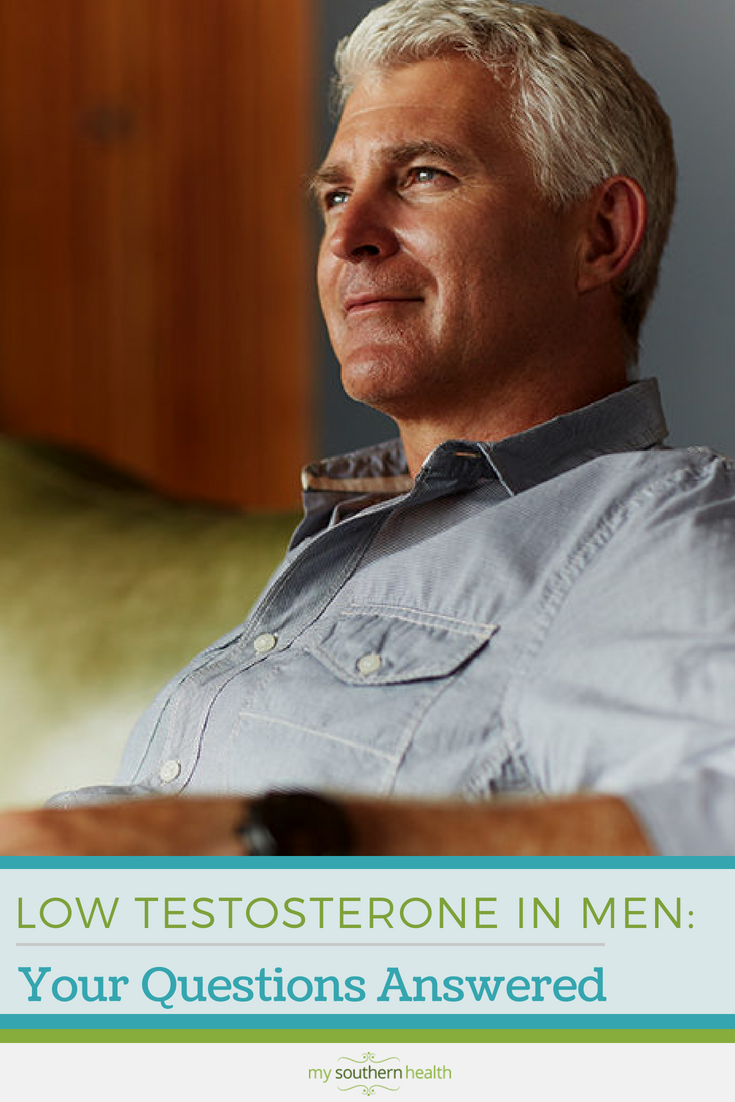Feeling blah? Low T could be the culprit, but replacement therapy isn’t always necessary.
If you’re experiencing a loss of libido or a drop in energy and strength, you might suspect low testosterone levels. As men age they do experience a natural decline in testosterone, but lifestyle factors also play a role in how we feel and our hormone levels. Making positive changes could address the issue.
“Obesity, smoking, poor overall health and especially chronic opiate use markedly decrease testosterone levels,” said Douglas Milam, M.D., associate professor of urologic surgery at Vanderbilt University Medical Center.
Consider other factors first.
If you have underlying conditions, you should work with your doctor to identify and treat them. “Low testosterone is a diagnosis of exclusion,” Milam said. “The symptoms that low testosterone produces are also very commonly produced by other important conditions, such as depression or failing health.” To add to the puzzle, mood issues and poor health habits could contribute to low testosterone. Either way, your best solution is to take stock of your overall health and address any possible causes of low testosterone.
Make healthy changes.
When it comes to declining testosterone levels in middle-aged men, Milam said obesity and smoking are the two biggest factors he sees in his office. He cites weight loss as the most important step a man can take to naturally boost testosterone. “As Americans have gotten out of shape it is easy to forget what ideal body weight should be,” he said. To find out your body mass index (BMI), use this calculator provided by the U.S. Centers for Disease Control and Prevention. A normal or healthy BMI is 18.5 to 24.9 for adults. A BMI greater than 30 is considered obese. If you’re a smoker, talk to your doctor about solutions and setting goals to quit.
What you need to know about testing.
Your doctor may opt to test your testosterone level. “Testosterone varies considerably throughout the day,” Milam said. “It is important to draw the total testosterone level in the first part of the morning, as levels are lower during the day.” If your result shows a low level for your morning test, your doctor should repeat the test just to be sure.
What you need to know about low testosterone treatment.
Testosterone replacement is administered in several ways: through an injection that is given about every two weeks, via the insertion of a pellet every three months, or by daily topical application of a gel, or patch.
Testosterone replacement therapy does have some ramifications, however.
“It is important to understand that when a patient begins to take testosterone, the normal production of testosterone by the body is turned off,” Milam said. The hypothalamus in the brain acts somewhat like a thermostat measuring circulating testosterone in the body. If it detects testosterone, it stops signaling the testicles to produce it. This usually leads to testicular atrophy and shrinking and infertility. “Sperm production often recovers to normal levels within six to 12 months after discontinuing testosterone therapy,” Milam added.
You may have heard that testosterone replacement carries cardiovascular risks in some individuals. “In healthy men who do not have a substantially increased red blood cell count, the risks of heart attack or stroke are probably not very substantially increased,” Milam explained. “There does continue to be substantial concern when testosterone is administered to the elderly and those with significant pre-existing cardiovascular disease.”
The bottom line: You don’t have to settle for feeling sluggish or having a low libido. Talk to your doctor about your symptoms and work together to find the right mix of solutions, whether those are lifestyle changes or a course of replacement therapy.


Vanderbilt’s team of urology experts offer the latest, most comprehensive care for a wide range of urologic diseases and conditions, including cancers of the prostate, bladder and kidneys and other urologic cancers; incontinence and other bladder-control problems; kidney stones; and sexual health problems, including erectile dysfunction (impotence). See more here or call 615-322-2880.

